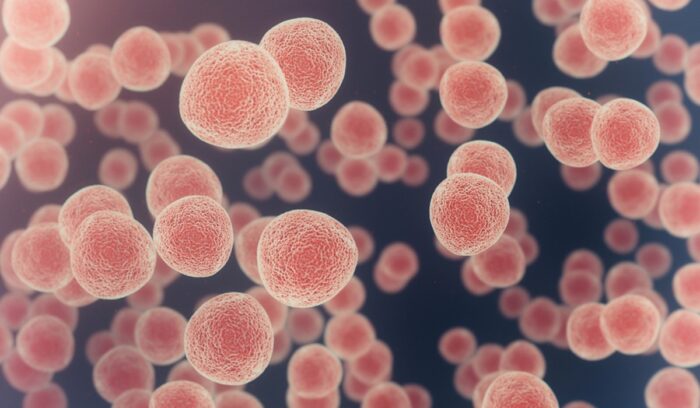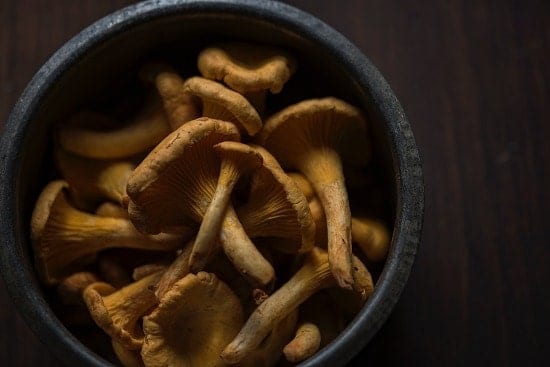Good news for humankind!
The world’s latest milestones for climate, justice, peace, health, and more
May 27 – June 2, 2024 C.E.
Thousands in the U.K. to trial breakthrough personalized cancer vaccines
Under the new scheme from the U.K. National Health Service, the first of its kind in the world, patients who meet the eligibility criteria and agree to have a blood test and sample of their cancer tissue analyzed will gain immediate access to clinical trials for the new vaccines that experts say represent a new dawn of treatments for cancer. While research into cancer vaccines is at an early stage, trials have already shown they can be effective at killing off any remaining tumor cells after surgery and dramatically cut the risk of cancer returning.
Campesinos plant nearly a million trees in deforestation hotspot in the Colombian Amazon
More than 700 campesinos from the municipality of Cartagena del Chairá have started restoring more than 11,000 acres of degraded rainforest in one of Colombia’s deforestation hotspots. In collaboration with researchers from SINCHI, the Amazonian Scientific Research Institute, and the Association of Community Action Boards, the families have recorded more than 600 plant and more than 100 animal species in the area.
Ireland, Norway, and Spain jointly recognize Palestine as a state
At a time when European capitals are divided over the Israeli-Palestinian conflict, the initiative aims to relaunch the peace process on the basis of the two-state solution. The State of Palestine is now recognized as a sovereign state by 145 of the 193 member states of the United Nations. It has been a non-member observer state of the United Nations General Assembly since November 2012.
Chinese scientists discover way to make batteries more efficient
A new water-based battery design is safer and more energy-efficient than traditional lithium-ion batteries, researchers from the Chinese Academy of Sciences claim. Today’s lithium batteries have enabled the rise of EVs, but their flammable organic electrolytes make them a fire risk, and their energy density puts a cap on EV driving range. The new water-based design replaces those combustible components with a safer, more stable water-based electrolyte that can pack way more energy into the same space.
U.S.’s Internal Revenue Service to make its free tax filing program permanent
A pilot version of the online program, known as Direct File, launched earlier this year. It provides free step-by-step guidance to taxpayers filing their federal tax returns. Last year, more than 140,000 people across 12 states successfully filed their federal tax returns using Direct File, exceeding the agency’s expectations. Next year, the IRS plans to allow some taxpayers in all states and Washington, DC, to use the program.
Peru approves the creation of long-awaited marine protected area
After 10 years of negotiations, Peru’s Council of Ministers has approved the creation of the Grau Tropical Sea National Reserve. To Peruvians, it is a much-awaited marine protected area, as it’s one of the most biodiverse stretches along the country’s coastline. The reserve covers over 285,000 acres of sea off the departments of Piura and Tumbes in northern Peru. The IUCN ranked the area among the 70 most important places in the world for marine biodiversity conservation.
Karla Sofía Gascón becomes the first trans woman to win award for Best Actress at Cannes
For the first time in its 77-year history, the Cannes Film Festival’s jury bestowed the award for Best Actress on an out transgender woman. Spanish actress Karla Sofía Gascón received the award at Saturday night’s gala awards ceremony alongside Adriana Paz, Zoe Saldaña, and Selena Gomez, her co-stars in French film-maker Jacques Audiard’s Spanish-language musical Emilia Pérez.
Uzbekistan plants millions of acres of forest where the Aral Sea once lay
Instead of trying to restore what used to be the world’s third largest lake, officials from the Uzbekistan Forestry Agency and locals are trying to plant a new forest where it once rested. The main purpose of the afforestation project it to curb the harmful sandstorms and improve the ecosystem by planting desert-tolerant plants. The initiative has so far planted 4.2 million acres of forest, with up to 494,000 acres of new forest planned for 2024.
Japanese scientists build world’s first wooden satellite
The satellite dubbed LignoSat, a collaboration between Kyoto University and the company Sumitomo Forestry, is reportedly slated for launch in September onboard a SpaceX rocket. If successful, the tiny device — just four inches on each side — could represent a major breakthrough in space sustainability efforts. The idea is that it’ll burn up entirely upon reentry, vastly reducing its environmental impact compared to traditional metal spacecraft.
Cryo-cooling breakthrough slashes the energy cost of serious cold by 71%
Cryogenic cooling is used to preserve tissues, eggs, sperm, and embryos and CAT scanners, CERN’s massive particle accelerators, and the James Webb Space Telescope possible. It may also one day be the key to making fusion power or quantum computers a reality. However, it is also quite energy-intensive. Fortunately, researchers at the U.S.’s National Institute of Standards & Technology have recently discovered a way to reach near-absolute zero up to 3.5 times faster or using about 71% less energy.
Louis S. Goodman and Alfred Gilman of Yale School of Medicine run first human trial of cancer chemotherapy (1942 C.E.)
In collaboration with a thoracic surgeon, Gustaf Lindskog, they injected the chemical mustine into a patient with non-Hodgkin’s lymphoma. The patient, a Polish immigrant to Connecticut known in literature only as JD, received his first injections on August 27, 1942 at 10 a.m. The doctors observed a dramatic reduction in the patient’s tumor masses.
Number of annual global deaths from cancer peaks and begins to decline (2046 C.E. ???)
After decades of slow progress, the world finally hits “peak cancer” where total deaths begin to decline due to a wave of medical advancements, stronger and more equitable healthcare systems, and healthier lifestyles.
These milestones have been added to the Archive of Human Genius, our database of social change milestones – past, present & future.
Subscribe
Our newsletter featuring good news from around the world
The latest laws, policies, science, and technology leading the way toward our brighter future



